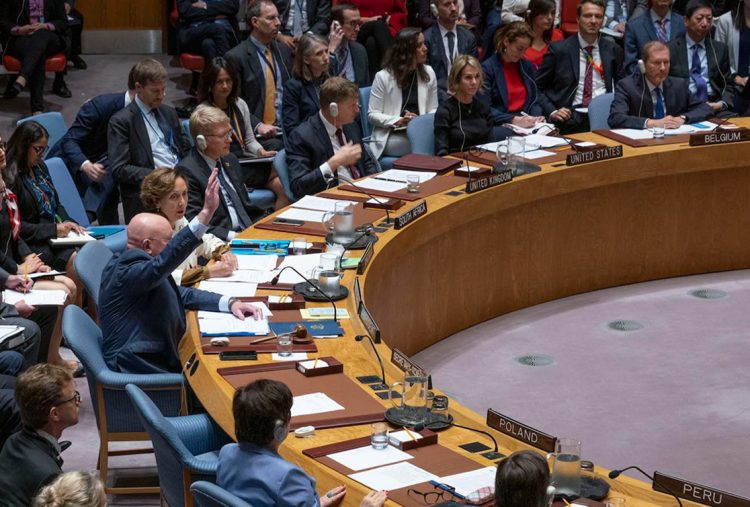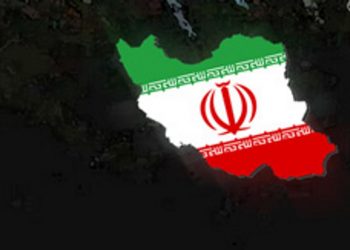Human Lives Human Rights: Human rights are the fundamental and inherent rights and demands of all human beings, regardless of their color, race, religion, gender or nationality. Although these rights are seemingly accepted by the vast majority of countries, in practice, there are events that contradict the claims of human rights by different countries, which are often supported and accompanied by them.
Among these countries, the permanent members of the United Nations Security Council can be mentioned. For example, when draft resolutions related to international peace and security, as well as human rights, are in conflict with their goals and interests, they vote against the desired draft and use their veto power to block the bill and remove it from the council’s agenda. The unfortunate and interesting point here is that to veto a draft, the negative vote of all permanent council members or even their qualitative majority is not needed. Rather, only one negative vote of one of the permanent members is enough to veto the draft. This point becomes more unfortunate when we realize that the permanent members of the council have no limit or fixed ceiling for using their veto power and can use it indefinitely. Even if the draft raised on the council floor is related to cases such as severe and widespread violations of human rights, such as crimes against humanity and its various domains, such as war crimes, genocide, mass killings or systematic crimes. For instance, the United States of America has regularly used its veto power to veto draft resolutions condemning Israel since the establishment of this state.
Therefore, unfortunately, this point shows that the procedure governing the Security Council is not legal and that its members, especially its permanent members, do not seek to uphold justice in the world community. Rather, it is a political procedure and the permanent members use their veto power, which is like a privilege for them, to pursue their political goals and interests. Therefore, from this perspective, we can say that the veto power is in complete contradiction with human rights and in many cases it renders these legal principles and standards ineffective.
The foundations of human rights
The recognition of human dignity and individualism has created the conditions for human beings to have rights and obligations that are called human rights. Of course, it is not possible to provide a specific definition of human rights because there are strong disagreements in this field and those rights have not yet been defined in a single definition of human rights. But there are some commonalities in some of these rights. For example, they all agree that humans have the right to life and no one has the right to kill someone without legal permission. Anyway, there is no doubt that human beings naturally have rights and they should be respected.
Human rights can be defined by explaining the role of freedom as a right in the relationship between humans and others. In a political definition, human rights are the set of privileges that belong to the people of a society and that are stipulated in its laws. People have these privileges by virtue of being human and in their relations with other members of society and with the ruling power. They also have the necessary guarantees and support for these privileges.
Human rights include freedom and independence; the right to file a lawsuit against individual aggression; the right to freedom and resistance against foreign aggression; as well as the right of human beings to enjoy the facilities of life to meet all their individual and social needs. These needs are expressed as active talents in individual and social interactions with government institutions. These needs are called rights or demands.
Historically; various thinkers and schools have discussed and examined the status of humans and the rights that follow from it by presenting different images of human society, such as natural society and civil society, etc. The first legal text written in human relations and related to human rights is the law of Hammurabi, which was compiled in 282 articles around 1730 BC. Some of these articles deal with providing fair behavior and at the same time some actions such as not killing anyone or not raping anyone are prohibited. After that, the declaration of human rights in the world was issued by Cyrus the Great, the founder of the Achaemenid dynasty. Cyrus the Great on October 13, 539 BC captured the historical city of Babylon and 16 days later, on October 29 of the same year, he issued his historic declaration, which is referred to as the first charter of nations and human rights.
After the end of the Second World War and the victory of the Allies, the United Nations Charter was signed in San Francisco on June 26, 1945 and entered into force on October 24 of the same year. According to this charter, an international organization called the United Nations was established as a center for coordinating actions to maintain international peace and security by preventing war and aggression, promoting friendly relations and respect for human rights and fundamental freedoms. The first general assembly of this organization was held in London on January 10, 1946 with 51 members. One of the duties of the Economic and Social Council, which is one of the main and important organs of the United Nations, according to the United Nations Charter, was to examine, study, make recommendations and establish a commission and hold a conference on human rights.
During its existence, the United Nations has issued about a hundred declarations, statements, covenants, conventions, protocols, recommendations and resolutions on various issues related to human rights. The Universal Declaration of Human Rights, which aimed to preserve human dignity and honor, was adopted by the United Nations General Assembly on December 10, 1948 with 48 affirmative votes and 8 abstentions from 56 member governments of the organization.
Some of these important treaties related to human rights are:
The International Convention on the Elimination of All Forms of Racial Discrimination (adopted in 1966 and entered into force in 1969)
The Convention on the Elimination of All Forms of Discrimination Against Women (adopted in 1979 and entered into force in 1984)
The Convention Against Torture and Other Cruel, Inhuman or Degrading Treatment or Punishment (adopted in 1984 and entered into force in 1987)
The Convention on the Rights of the Child (adopted in 1989 and entered into force in 1990)
The Convention on the Rights of Persons with Disabilities (adopted in 2006 and entered into force in 2008)
The International Convention on the Protection of the Rights of All Migrant Workers and Members of Their Families (adopted in 1990 and entered into force in 2003)
According to these documents, the most important basic human rights were formulated. These rights are classified into different generations and each one has a characteristic related to its own generation. They are as follows:
The right to life
The prohibition of torture
The prohibition of slavery
The freedom of thought, belief and religion
The nature of human rights violations
Human rights violations are the result of abuse of people by governments or non-governmental organizations or ignoring their fundamental rights (including the International Covenant on Civil and Political Rights and the International Covenant on Economic, Social and Cultural Rights) or when any government or non-governmental organization does not comply with part of the International Covenant on Civil and Political Rights or other international laws and human rights for some people. In the Universal Declaration of Human Rights, it is recommended that governments do not restrict human rights. But later, in the International Covenant on Civil and Political Rights adopted in 1966, including in Article 4, it tried to justify the restriction of human rights when security problems arise.
Human rights violations occur in all countries. But the difference of this type of violation in different countries depends on its intensity and extent. It is also stated in the covenant that in the situation where the existence of a government is in danger, the government with this justification can impose limitations to preserve the government and democracy and maintain the possibility of observing human rights. But some governments abuse this provision for their own benefit. In fact, some countries by declaring special and emergency conditions try to limit human rights.
Violation of human rights is considered a crime when international criminal law recognizes an act as a crime. These include mass murder; war crimes; crimes against humanity; and even rape. Of course, Article 19 of the 1996 draft articles of the International Law Commission on state responsibility also considered the following cases as crimes or more precisely as internationally wrongful acts:
1- A serious breach of an international obligation that is essential for safeguarding international peace and security; such as prohibiting aggression. 2- A serious breach of a rule that is essential for protecting the right of peoples to self-determination; such as violating the rule that prohibits establishing or maintaining colonial rule by force. 3- A serious and widespread breach of an international obligation that is essential for safeguarding human existence; such as obligations based on prohibiting slavery; mass murder; or apartheid. 4- A serious breach of an international obligation that is essential for protecting and preserving the human environment; such as obligations regarding preventing pollution of the earth’s atmosphere or the oceans.
When it comes to safeguarding human existence, there is no longer a difference between human rights and humanitarian rights. Therefore, even in situations of war and armed conflict, the IRGC’s firing on a passenger plane is an unlawful act that resulted from an error or accident and it falls under the scope of human rights law.


















